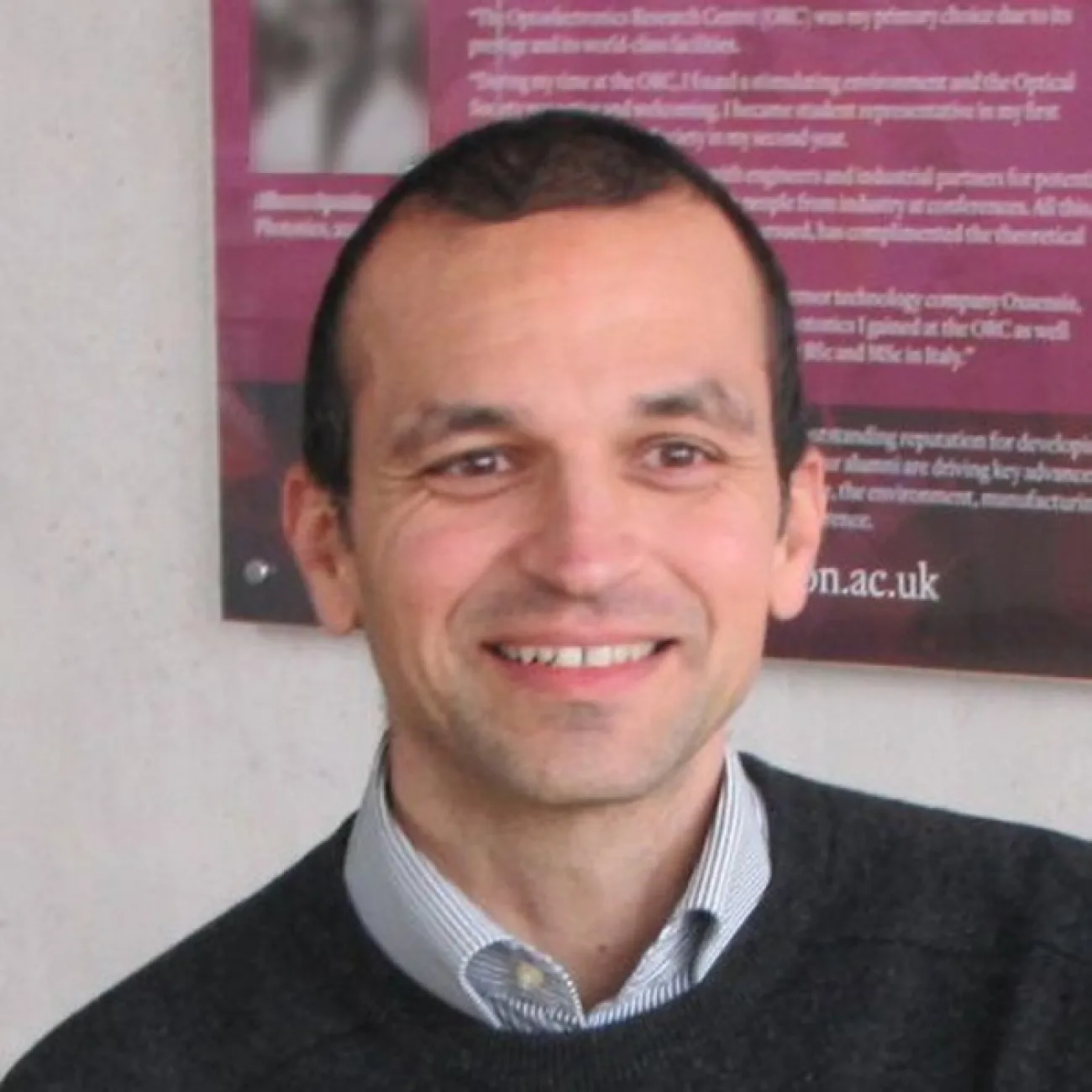About
Deputy Director of the Optoelectronics Research Centre (ORC)
Professor of Optical Communications
Research
Research groups
Research interests
- Optical communications,
- All-optical signal processing,
- Novel fibre and waveguide technologies
Current research
Current research projects include:
- The EPSRC Programme Grant Airguide Photonics
- The Government funded project Realising Enabling Architectures And Solutions For Open Networks (REASON) involving stakeholders from both the academia and industry
- The EPSRC project Silicon-rich silicon nitride Nonlinear Integrated Photonic ciRcuits & Systems (juNIPeRS)
- Two EPSRC Future Communications Systems Platforms
The Telecommunications Systems Lab is part of the UK's National Dark Fibre Facility.
PhD Supervision
Periklis has supervised 17 PhD students to completion to date. His most recent PhD student won the School's 'Team 96' Award for the best graduating student of the year.
More details on her thesis can be found below:
ADVANCED O-BAND COMMUNICATIONS ENABLED BY A NOVEL BISMUTH-DOPED FIBRE AMPLIFIER
PhD Thesis by Natsupa Taengnoi
Research projects
Active projects
Completed projects
Publications
Pagination
Teaching
Professor Petropoulos is the Module Leader of OPTO6010: Advanced Fibre Telecommunication Technologies
External roles and responsibilities
Biography
Professor Periklis Petropoulos, FOSA graduated from the Department of Electrical Engineering and Information Technology, University of Patras. He received an MSc degree in Communications Engineering from the University of Manchester Institute of Science and Technology and a PhD degree in Optical Telecommunications from the Optoelectronics Research Centre (ORC), University of Southampton. He is currently a Deputy Director of the ORC, where he works as a Professor of Optical Communications. His research interests lie in the fields of optical communications, all-optical signal processing and novel fibre and waveguide technologies. He has been an investigator of research projects worth >£33M, funded from a variety of sources, including the EU, EPSRC and the industry. He was the Programme Manager of the multi-million-pound EPSRC Programme Grants Photonic Hyperhighway (2010-2016) and Airguide Photonics (2016-), of which he is also the Primary Investigator. He is a founding member of the Management Board of the UK’s National Dark Fibre Facility (NDFF), an installed fibre network dedicated to research purposes. His research has produced >570 publications in technical journals and conference proceedings, including several invited and post-deadline papers (these are conference announcements of great urgency and significance) at major international conferences. He has supervised 17 PhD theses to completion so far.
Prof Petropoulos is the Editor-in-Chief of IET Optoelectronics. He has served both as member and sub-committee chair of the Technical Programme Committees for several international conferences, including the European Conference on Optical Communication (ECOC) and the Optical Fiber Communication (OFC) conference; these are the two largest international conferences in the field.
He is a Fellow of Optica (formerly the Optical Society of America).
